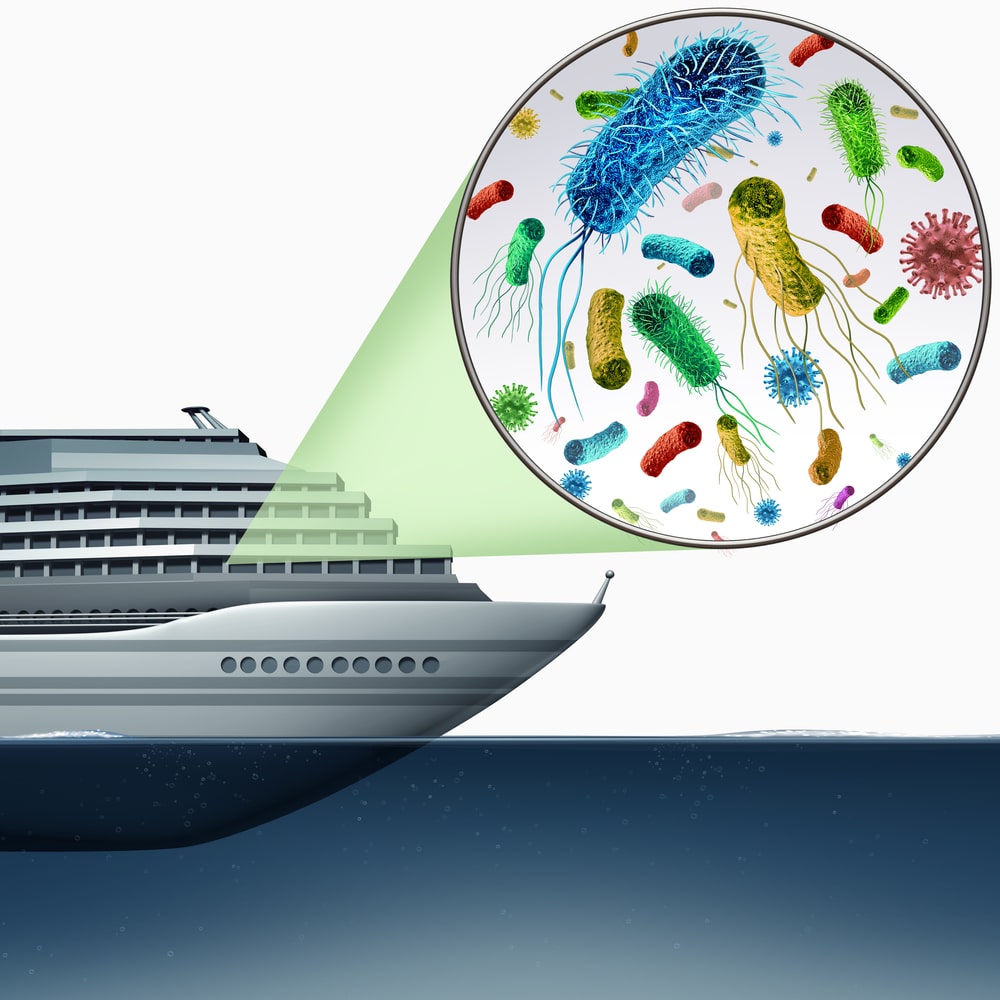
Traveling on a cruise ship is a great adventure that millions of people embark on each year. Food, drink, entertainment and mingling with friends old and new – these are all reasons why cruises are popular. Unfortunately, these very amenities contribute to the risk of illness on cruise ships. Gastrointestinal illness is one of the leading causes of cruise ship injuries among passengers.
A prime example is the recent gastrointestinal outbreak onboard the cruise ship Caribbean Princess. The ship, operated by Princess Cruise Lines, was denied entry into Trinidad and Tobago due to a “significant outbreak” of gastrointestinal illness. According to reports, at least 299 passengers are sick with what has only been identified as gastroenteritis. Passengers are receiving treatment from the onboard medical team.
In a statement, the Ministry of Health for the Government of the Republic of Trinidad and Tobago confirmed the gastrointestinal illness outbreak and said that,
“there have been no suspected or confirmed cases of the Novel Coronavirus in Trinidad and Tobago.”
The ministry of Health said that they made the decision to deny entry out of an abundance of caution to protect island residents. After being denied entry into Trinidad and Tobago and the Bridgetown Port of Barbados, the ship was ordered back to Florida.
Cruise Ship Passengers Suffering Illness On Several Ships
Naturally, becoming ill and having to cut a vacation short is no one’s idea of a good time. While 299 people are ill, there is a total of 3,000 guests and 1,000 crew members onboard the ship. Princess Cruise Lines issued a statement about the outbreak, saying:
“the health and safety of our guests and crew is our top priority, and in working with the U.S. Centers for Disease Control and Prevention (CDC), it was decided out of an abundance of caution, in this specific instance, to discontinue the cruise.”
Princess Cruise Lines is the same cruise company that operates the Diamond Princess – a ship quarantined off the coast of Japan due to coronavirus. On that ship, at least 130 people have the illness. The cruise company says they plan to refund the full price of the cruise for the guests stranded off the coast of Japan. They have not indicated whether passengers on the Caribbean Princess will receive any compensation.
Gastrointestinal Illness Outbreaks on Cruise Ships
According to the Centers for Disease Control and Prevention (CDC), between 2008 and 2014, 74 million people sailed on cruise ships. Of those, 129,678 people developed acute gastrointestinal illness. Cruise ship passengers are vulnerable to gastrointestinal illness outbreaks due to several factors. Most notably:
- Passengers stay in confined and close quarters
- Cruise ship kitchens prepare food on a massive scale
- Passengers and crew share many of the same areas of the ship
- Passengers joining the ship may bring the virus onboard to others
- Internal areas of the ship may have inadequate ventilation
These factors enhance the risk of gastrointestinal illnesses, which spreads from person-to-person, through contact with objects and through food. In 2019, there were 10 gastrointestinal illness outbreaks onboard cruise ships. Most of the illnesses were due to norovirus.
Information About Norovirus
Norovirus is the most common cause of gastroenteritis. Each year around 56,000 people are hospitalized due to the illness. There are an estimated 570-800 deaths. Norovirus is a virus that enters the body and causes inflammation of the stomach and intestines. Symptoms may develop within 24-48 hours after exposure, and generally include:
- Abdominal cramps
- Fever
- Headache
- Chills
- Muscle pain
- Watery diarrhea
Some people also experience low blood pressure and an increase in heart rate. It is important to get a diagnosis quickly to promote healing and prevent dehydration. Norovirus can cause complications, especially in children or the elderly. Consequently, anyone who has norovirus should get medical attention if they experience:
- Dizziness
- Excessive weakness
- Dry throat or mouth
- Decreased urine output
These can be signs of dehydration, which can be dangerous without proper treatment.
Because norovirus is a virus, antibiotics are not a suitable treatment method. Instead, most people will simply have to allow the virus to run its course. In the meantime, patients can relieve symptoms with rest, lots of clear fluids and anti-nausea or anti-diarrhea medication.
Sources: